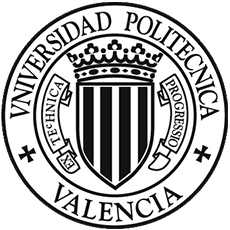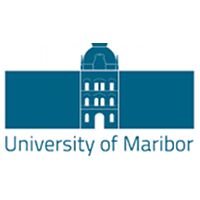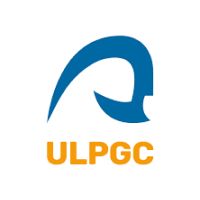Hello 👋🏻
I'm Jose Daniel
I'm
PhD|


🎓 Senior Data Scientist and Telecom Engineer with a PhD in Computer Science, passionate about solving real-world problems through geospatial analytics, machine learning, and data-driven strategy.
🛰️ Currently at TomTom, I help shape the future of Lane Model Maps by designing map quality metrics and geospatial analysis frameworks for autonomous navigation and next-gen routing systems. I work with stakeholders to define KPIs, build scalable data pipelines with Databricks and PySpark, and present actionable insights through dashboards built in Streamlit and Python.
🌍 During my PhD, I led applied research projects that optimized urban traffic routing and reduced environmental impact, merging simulation, predictive modelling, and environmental science into usable tools for cities. My work was published in peer-reviewed journals and presented at international conferences.
🧠 What sets me apart is my ability to bridge research and industry: turning complex geospatial and traffic data into scalable systems that improve mobility, sustainability, and decision-making.
💬 I’m always open to connecting with others in the data, AI, geospatial, and smart mobility space — feel free to reach out!
I focus on Map Advanced Analytics & Lane Model Maps to enhance the quality and development of autonomous driving technologies.
• Lead the design of customer-facing quality metrics and KPIs used by engineering and sales teams to prioritize development and demonstrate product value.
• Own the end-to-end ETL lifecycle for complex geospatial data using PySpark and Python on Databricks, significantly reducing processing latency and improving data reliability.
• Built interactive Streamlit dashboards for real-time stakeholder monitoring, empowering non-technical teams to perform self-service analysis.
• Optimized High Definition (HD) map layer assessment methodologies using QGIS and GeoPandas, enhancing the accuracy and scalability of quality evaluation frameworks.
As a Data Scientist (Researcher), I focused on urban traffic efficiency and pollution-impacted routing strategies.
• Improved urban traffic efficiency by 20% through the development and implementation of ML-based routing algorithms and pollution-aware traffic models.
• Managed large-scale experimental datasets via robust Python and SQL ETL pipelines, ensuring data integrity for research and analysis.
• Partnered with international research teams (including DLR) for scientific publications and presented findings on data-driven mobility solutions at global conferences.
• Developed data-driven research proposals and utilized advanced statistical analysis to influence city planning and environmental policy.
Focused on sustainable city planning and traffic management during a research stay at DLR in Berlin.
• Developed geospatial predictive models for urban pollution forecasting using Python and Scikit-Learn.
• Monitored model performance and identified data drift, optimizing model accuracy to support environmental policy recommendations.
• Collaborated with interdisciplinary teams to analyze large-scale traffic datasets and derive actionable insights for sustainable urban development.
Focused on Computer Networks & Informatics Engineering education.
• Taught lab sessions in English for courses such as Design of Local Area Networks (LANs) and Network Technology.
• Managed group dynamics and mentored students to ensure academic success.
• Developed comprehensive lab manuals and technical assignments, aligning course materials with practical learning objectives.
As an Android Developer Intern at Sanpani, I worked on the development of an app for managing the data of biological activity in human cells. My responsibilities included:
• Collaborating with the development team to design and implement the app's features and functionality.
• Writing efficient and scalable code using Java.
• Conducting testing and debugging to ensure the app's performance and usability met the project's requirements.
Through this internship, I gained experience in developing Android applications and working in a team-based development environment.

My PhD focuses on developing an urban traffic management system that integrates pollution criteria to optimize traffic flow and air quality in cities. Throughout my research, I have gained expertise in critically analyzing complex ideas, advanced data analysis, and visualization techniques. This process has also strengthened my skills in communicating and disseminating research findings effectively. I have a comprehensive understanding of my field but also I am equipped with the resilience needed to tackle future challenges.

During the Master, I studied the necessary skills to manage challenging projects.
Risk management, finance and team, as well as leadership, are some of the topics covered in the program, which also includes practical experience through a final project. I am also developing my communication and leadership skills, which are essential to successfully manage a project.
Upon completion, I will have an in-depth knowledge of project management, which will make me an important asset to any organization.

Throughout the master's degree, I have learned various concepts ranging from software development to computer architecture.
What I highlight the most from the master are the knowledge learned in relation to IoT, communication networks, Python development and the reading and writing of research papers.

During my Erasmus in Maribor, I learned several things: how to integrate in multicultural environments, programming languages among which C++ stands out, how to manage in an environment that is not yours and diverse cultures through the trips I made (Czech Republic, Slovakia, Greece, Austria, Italy, Hungary, Serbia, Bosnia...).
Without a doubt, I think that Erasmus has been the best experience of my life.

During my years at the University of Las Palmas de Gran Canaria, I have acquired technical and personal knowledge.
On one hand, from the technical side, there are wide aspects that go from web development to network management. For example, programming languages I have studied are: Java, JavaScript, Python, PHP, C, ASM... Of these I highlight that my greatest knowledge is in Java and Python.
On the other hand, of the personal ones, the following stand out: teamwork, confidence in one's partner, perseverance, sacrifice and effort.
Padrón, J. D., Calafate, C. T., Cano, J. C., & Manzoni, P. (2026). Dynamic Traffic Routing for Air Quality Enhancement During Urban Environmental Crises. IET Smart Cities 8, 1.
Padrón, J. D. (2025). An urban traffic management framework integrating pollution criteria. Universitat Politècnica de València.
Padrón, J. D., Behrisch, M., & Calafate, C. T. (2024). SUMO2GRAL: A tool to simplify the workflow of estimating pollutant concentrations in urban areas. In 2024 IEEE/ACM 28th International Symposium on Distributed Simulation and Real Time Applications (DS-RT 2024). IEEE.
Martínez, A., Padrón, J. D., Zambrano-Martinez, J. L., & Calafate, C. T. (2024). Adaptive Sharing of IoT Resources Through SDN-Based Microsegmentation of Services Using Mininet. In International Conference on Simulation Tools and Techniques. Springer.
Padrón, J. D., Hernández-Orallo, E., Calafate, C. T., Soler, D., Cano, J. C., & Manzoni, P. (2023). Realistic traffic model for urban environments based on induction loop data. Simulation Modelling Practice and Theory, 125, 102742.
Riviere, M., Padrón, J. D., Calafate, C. T., Cano, J. C., & Razafindralambo, T. (2023). Improving emergency vehicles flow in urban environments through SDN-based V2X communications. In 2023 IEEE 97th Vehicular Technology Conference (VTC2023-Spring). IEEE.
Padrón, J. D., & Calafate, C. T. (2023). Análisis de los factores que afectan los resultados de evaluación en una asignatura universitaria: un enfoque multidimensional. Innovación docente e investigación en ciencias, ingeniería y arquitectura. Dykinson.
Padrón, J. D., Soler, D., Calafate, C. T., Cano, J. C., & Manzoni, P. (2022). Improving air quality in urban recreational areas through smart traffic management. Sustainability, 14(6), 3445.
Padrón, J. D., Terol, M., Zambrano-Martinez, J. L., Calafate, C. T., Cano, J. C., & Manzoni, P. (2021). Assessing the impact of road traffic constraints on pollution. In 2021 IEEE 94th Vehicular Technology Conference (VTC2021-Fall). IEEE.
Madrid, Spain